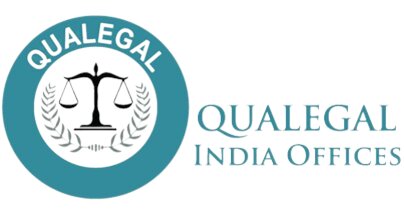Best Tax Increment Financing Lawyers in New Delhi
Share your needs with us, get contacted by law firms.
Free. Takes 2 min.
List of the best lawyers in New Delhi, India
About Tax Increment Financing Law in New Delhi, India
Tax Increment Financing (TIF) is a tool traditionally used for urban development and redevelopment projects. It allows municipalities to promote economic development by borrowing against future property tax revenues expected to be generated by a development project. TIF is relatively new in India, but has been increasingly explored by local governments in cities like New Delhi due to its potential for facilitating infrastructure improvements and urban revitalization. The basic premise involves earmarking increased property tax revenue from a defined geographic area to fund development activities within that area.
Why You May Need a Lawyer
Individuals and business entities may require legal assistance for several reasons when dealing with TIF in New Delhi:
- Understanding the intricate process of applying for TIF funding and ensuring compliance with local rules and regulations.
- Negotiating terms with municipal authorities and other stakeholders involved in a TIF project.
- Facilitating risk assessment and regulatory compliance to avoid potential legal issues.
- Dispute resolution when disagreements arise between parties involved in TIF projects.
- Navigating any legal changes, such as amendments to TIF laws or policies.
Local Laws Overview
In New Delhi, Tax Increment Financing requires clear compliance with local urban development plans and guidelines set forth by municipal authorities in conjunction with state-level legislative frameworks. Some key aspects include:
- Eligibility criteria for areas to qualify as TIF districts, which typically must demonstrate a need for development.
- A process for municipal approval and oversight, including financial planning and public consultations.
- Legal provisions for bond issuances and financial management, ensuring accountability for public funds.
- Restrictions on the type of projects that can be funded through TIF, generally focusing on infrastructure and community improvements.
Frequently Asked Questions
What is a TIF district?
A TIF district is a designated geographic area where TIF is applied to encourage development. The area is typically in need of revitalization and is expected to generate new property tax revenues as a result of development.
How does TIF benefit New Delhi?
TIF can enhance infrastructure, promote business growth, and increase property values in designated areas, leading to broader economic benefits for the entire city.
Who oversees TIF projects in New Delhi?
Municipal authorities in New Delhi oversee TIF projects, typically in conjunction with state legislative bodies and urban development agencies.
Are there risks associated with TIF?
Yes, potential risks include financial shortfalls if projected tax revenues do not materialize, possible displacement of residents, and legal challenges associated with project approvals.
Can TIF be used for any type of project?
No, TIF is generally used for projects related to infrastructure improvements, such as transportation, public facilities, and business development.
How can I apply for TIF funding for my project?
You will need to consult with the local municipal authority to understand the requirements and submit a detailed project proposal for consideration.
Is public consultation mandatory for TIF projects?
Yes, public consultation is often a key component of the TIF approval process to ensure transparency and community involvement.
What legal documentation is required for a TIF project?
This can vary but typically includes project proposals, financial plans, agreements with municipal authorities, and any necessary permits.
How long does a TIF agreement last?
TIF agreements can vary, often extending 20-30 years, depending on the scope and expected completion timeline of the project.
Can TIF be used to fund public services?
TIF is primarily used for infrastructure development, although improved public services can be a byproduct of successful projects.
Additional Resources
For those seeking further information or assistance with TIF in New Delhi, consider the following resources:
- Delhi Development Authority (DDA): Often involved in urban planning and development initiatives.
- Municipal Corporation of Delhi (MCD): Provides guidance on local regulations and compliance.
- State Urban Development Departments: Offer insights into policy frameworks and strategic planning.
- Legal firms specializing in urban development and financial regulation.
Next Steps
If you need legal assistance with TIF in New Delhi, consider the following steps:
- Consult with a lawyer who specializes in urban development and financial regulation to discuss your specific situation.
- Gather all necessary documentation related to your potential TIF project, such as proposals and business plans.
- Engage with local municipal authorities early to ensure compliance with application procedures and legal requirements.
- Consider reaching out to community organizations or local stakeholders to build support for your project.
- Stay informed about any legislative changes or updates to TIF policies in New Delhi.
Lawzana helps you find the best lawyers and law firms in New Delhi through a curated and pre-screened list of qualified legal professionals. Our platform offers rankings and detailed profiles of attorneys and law firms, allowing you to compare based on practice areas, including Tax Increment Financing, experience, and client feedback.
Each profile includes a description of the firm's areas of practice, client reviews, team members and partners, year of establishment, spoken languages, office locations, contact information, social media presence, and any published articles or resources. Most firms on our platform speak English and are experienced in both local and international legal matters.
Get a quote from top-rated law firms in New Delhi, India — quickly, securely, and without unnecessary hassle.
Disclaimer:
The information provided on this page is for general informational purposes only and does not constitute legal advice. While we strive to ensure the accuracy and relevance of the content, legal information may change over time, and interpretations of the law can vary. You should always consult with a qualified legal professional for advice specific to your situation.
We disclaim all liability for actions taken or not taken based on the content of this page. If you believe any information is incorrect or outdated, please contact us, and we will review and update it where appropriate.

















